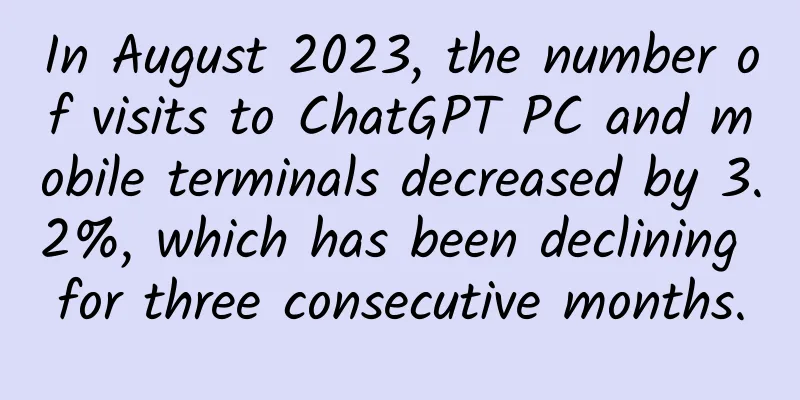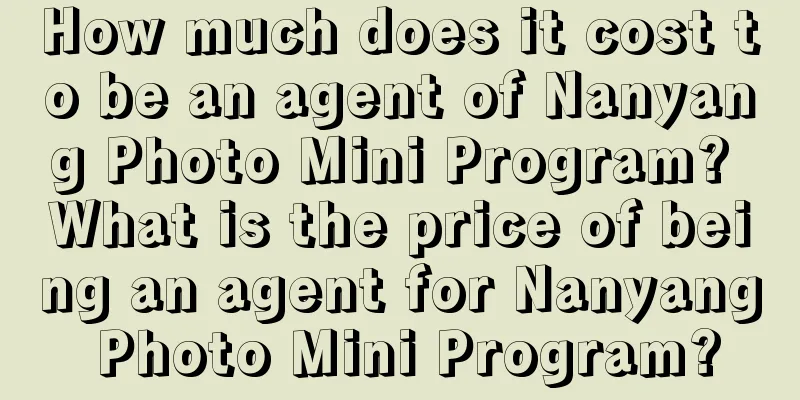In August 2023, the number of visits to ChatGPT PC and mobile terminals decreased by 3.2%, which has been declining for three consecutive months.

|
AI companies have set their sights on big corporate clients. When people are no longer enthusiastic about ChatGPT, what is left for AI? Wall Street Journal previously reported that ChatGPT's website visits have been declining for three consecutive months - visits to PC and mobile terminals fell by 3.2% in August, and visits in the previous two months both fell by 10%. In the United States, ChatGPT traffic has been declining since May, and the decline has gradually leveled off in August. The downward trend in global traffic data is even more obvious. Analysts have pointed out that about a quarter of ChatGPT users worldwide are aged 18-24, so when schools are on vacation in the summer, the website's traffic also decreases. David F. Carr, senior insights manager at Similarweb, wrote in an August report:
Users may partially recover in September as students return to school. There are also views that the cooling of ChatGPT is also related to its declining capabilities. A research paper published by Stanford University and the University of California, Berkeley, found that the latest ChatGPT models fell significantly short in several areas, especially on math-related problems. The researchers tested ChatGPT in March and again in June, and in one example, it was accurate in identifying prime numbers just 2.4 percent of the time in June, compared to 97.6 percent in March. On the one hand, the capabilities are declining, and on the other hand, the competition faced by ChatGPT is also intensifying. Similarweb stated in the report that ChatGPT had almost a monopoly in the field when it was released, but now there are 9 chatbot applications that are comparable in scale to ChatGPT. What’s next for AI? Chatbots are just the starting point of AI, and what the next stop is is a question that both OpenAI itself and the capital market want to figure out. Wall Street Journal previously mentioned that the AI sector no longer has enough momentum to move further upward. As AI has limited impact on revenue growth, the stock price of Microsoft, OpenAI's major backer, has fallen 7.4% since mid-July, and the social platform Snapchat has been sold off because of the squeeze on profits from AI investment. Bank of America cited EPFR data and pointed out that in the week ending September 6, technology stocks saw an outflow of $1.7 billion, facing the first sell-off in 11 weeks, which may mean that AI hype is receding. Index Ventures partner Mark Goldberg said that the emergence of commercial AI applications was once expected to be "realized at the speed of light", but now "there is a shallow sense of disillusionment":
Investors have rushed to back startups that are building these products before they have customers or revenue, raising concerns that the market could be overheating. As industry trends become clearer and investors' patience runs thin, Citi analyst Scott Chronert told the media that AI hype has now entered the "show me the results" stage. The solution currently proposed by OpenAI is ToB commercialization. According to the minutes of OpenAI's closed-door meeting leaked in early June, its CEO Sam Altman mentioned that ChatGPT's mission is to attract more companies to access its API. AI startups have all turned their attention to providing technical services to B-side customers. They need to attract new customers to keep up with their still "expanding" valuations, while technology giants such as Salesforce, which have been deeply rooted in enterprise software for many years, have a huge customer base. OpenAI previously said in a blog post that ChatGPT Enterprise will provide enterprise customers with an advanced version of the bot with "enterprise-grade" security and privacy enhancements over previous versions. ChatGPT Enterprise will be powered by OpenAI’s highest-performing model, GPT-4, just like the company’s personal subscription version, ChatGPT Plus, but enterprise customers will get special benefits, including faster speeds. |
<<: IBM's SyNAPSE chip can simulate the brain
>>: Survey shows only 5% of consumers are interested in buying a Fire Phone
Recommend
Microsoft Edge 93 for Android released
[[422344]] Following the desktop update, Microsof...
Android apk anti-decompilation technology Part 1 - Packing technology
I have been working on Android framework for near...
Beijing has another "textbook-style epidemic prevention"! This time the building was not even closed!
May 2 Official WeChat Account of Xicheng District...
Can't lie flat, can't stand it! Contemporary young people are rushing to diagnose "Light Syndrome"
Speak “blandly”: “got it” and “ok” are the norm i...
Guide to short video advertising in the wedding industry!
The wedding industry has always been an industry ...
36 replicable high emotional intelligence communication techniques that will allow you to chat with anyone
36 Replicable High EQ Communication Skills to Hel...
What is the meaning of the peach wood Wenchang Tower? What are the taboos for placing the peach wood Wenchang Tower?
Wenchang Pagoda is the most commonly used ritual ...
5 core steps to acquire app users
[[132832]] Many startups are happy to try to find...
How to achieve the world's "depth"? Scientific drilling into the earth to explore the secrets
Since ancient times, "going to the sky and i...
I am so impressed by how information flow advertising is done!
After reading this article, I hope your informatio...
Online education will face dramatic changes; Hujiang appeared at GMIC to start a new wave of AI teaching
When it comes to artificial intelligence, most pe...
9 key points of event planning!
This article will explain one by one how to carry...
Musk admits that FSD needs to be improved, "LiDAR is lagging behind", but outsiders say Tesla is writing a blank check
Although Tesla has always been a leader in the fi...
How much does it cost to customize the Shanghai Building Materials Mini Program? What is the price of customization of Shanghai Building Materials Mini Program?
WeChat Mini Program is an application that users ...
Electric Technology Auto News: Tencent, which has been criticized as the original creator in the automotive industry, is Zotye really no longer plagiarizing?
When talking about domestic independent brands, Z...









